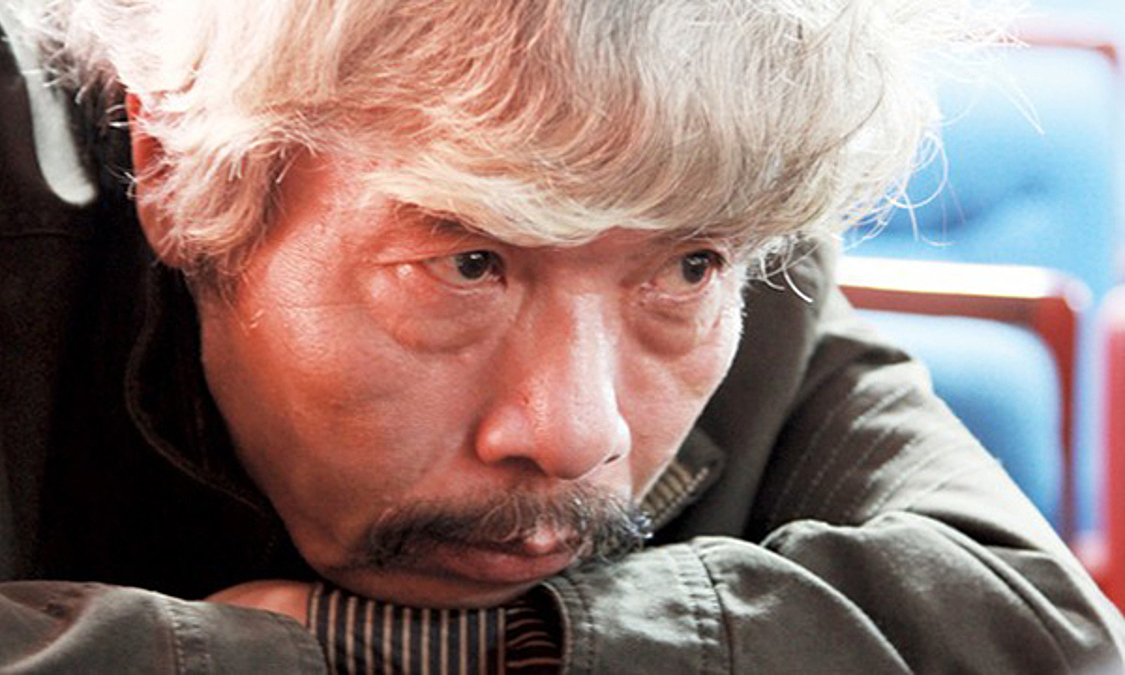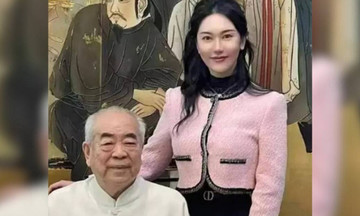Bao Ninh is one of the most prominent names in Vietnamese literature during the Doi Moi period, best known for his novel "The Sorrow of War." On the occasion of the 80th anniversary of the August Revolution and National Day (2/9), he spoke about war, peace, and literature.
On the 80th anniversary of the August Revolution and National Day (2/9), as a veteran, what are your reflections on the price of independence and freedom?
Every year, during the autumn of National Day (2/9) and the spring of Liberation Day (30/4), I take a trip to the South, usually by train, sometimes by plane. Hanoi to Saigon, two thousand kilometers. This year, I'm unable to go due to personal commitments.
Nowadays, a train journey takes 30 hours, while a flight takes two—a mere fraction of a night's sleep. But when we were young, from the time our battalion left Hanoi for the B area until the fall of Tan Son Nhat on 30/4/1975, it took six years. From the time my seniors in the division first clashed with American troops at Plei Me, it was exactly 10 years. From the August Revolution to the nationwide resistance until the day the country was unified, it was a long 30 years. And even further back, from the mid-19th century, when our ancestors fought against the French colonialists during the Can Vuong movement, how many years was that?
Along the North-South railway alone, there are countless martyrs' cemeteries. Every major and minor station holds echoes of past wars. It can be said that every square meter of our country, and every moment of the past years, bears the weight of those who fell for the independence and peace we enjoy today.
 |
Author Bao Ninh. Photo: Nguyen Dinh Toan |
Author Bao Ninh. Photo: Nguyen Dinh Toan
How do the lingering aftershocks of war, such as Kien's "feeling of displacement in peacetime" (in "The Sorrow of War") and the "survivor's guilt" (in "That Tet, After the War"), still affect you?
War is a situation that anyone who has experienced it, even for a brief hour, wishes they, their descendants, and their country would never again witness. Yet, it’s impossible to forget, even a single detail among countless situations. Perhaps it can only fade, soften over time, allowing us to work, earn a living, and live the life that our fallen comrades yielded to us.
What spiritual anchor helps you coexist with and overcome these sorrows?
Closing the past and looking towards the future. This is a call to action, a rallying cry, but also a self-reminder for each individual, especially those who have lived through the hardships of war. Of course, it's not easy, but it requires tremendous effort from each person and the entire nation. And, thanks to the magic of time—50 years have passed since the end of the war and nearly 40 years since the beginning of Doi Moi.
You once said you wrote "to tell the story of my time, the time of war." What motivated you to choose that mission?
Poetry is different, but prose, I think, is simply storytelling. Telling stories orally and in writing: memoirs, reports, essays, short stories, novels, non-fiction or fiction. But fiction is based on the foundation of reality, the life of the storyteller. Especially the most profound periods of life.
I am now 74 years old, but my brief six years as a soldier were the most profound and memorable. Therefore, I often recount them, sharing with my parents, wife, children, friends, and sometimes I write them down.
And I'm not alone. If there's a veteran in a family, everyone often hears stories from him, sometimes repeated, about the war. Our country has been at war for a thousand years, so this has been going on for a thousand years.
Buddhist Emperor Tran Nhan Tong wrote a poem about veterans who fought against the Yuan invaders during his grandfather's time, King Tran Thai Tong:
"The old soldier with white hair
Keeps telling stories of Nguyen Phong"
Previously, you mentioned wanting to revise "The Sorrow of War" for improvement. What about now?
Now I think, for writers, once a work is written and published, it becomes a part of life, a chapter in life. Good or bad, it's in the past, how can it be amended or revised? One can only continue living and writing.
What advice do you have for young writers who want to write about war?
In my opinion, there shouldn't be the concept of "theme" in literature. I find this classification forced and restrictive for both writers and readers. If a work is set during wartime, it belongs to the "theme of war," so wouldn't writing about today be the "theme of peace"? Does Phung Quan's novel "Turbulent Childhood" belong to the "theme of children" or the "theme of war"?
The historical theme, in my opinion, is also a restrictive concept. Although literature and history are closely related, literature is literature. A literary work depicts human life and destiny in a space and time that doesn't necessarily coincide with the author's or reader's present.
For example, we don't read "The Absented" (Nguyen Binh Phuong) and "Nang Tho Tang" (Dinh Phuong) to learn about the Thai Nguyen or Yen Bai uprisings. We don't read "Bao Tap Trieu Tran" to study that dynasty. Because we're not reading historical documents, but novels. We contemplate the writing and fictional narratives of authors like Hoang Quoc Hai, Nguyen Binh Phuong, and Dinh Phuong. They, with their literary talent, individual style, and confidence in imagination, respecting reality but not bound by it, bring to life before our eyes, almost blending into the present, the destinies of people who lived hundreds, even thousands of years ago.
Similarly, today's and future writers, if truly passionate, can absolutely write well about the lives and destinies of people within the context of 20th-century wars. For readers, the value of a literary work lies in the author's writing: is it good, is it engaging, not what it's about or when it's set. That's what I think.
I remember, at the beginning of Doi Moi, author Nguyen Minh Chau, in a lecture at the Nguyen Du Writing School, advised students to resist the habit of being bound by reality. He said something along the lines of: truly new things, even the newest things that appear in life and literature, often come from past realms that have never been known or thought of.
Singer Tung Duong performs "Writing the next chapter of peace" at the "To Quoc Trong Tim" concert on the evening of 10/8 in Hanoi. Video: Youtube VOV live
By Khanh Linh











